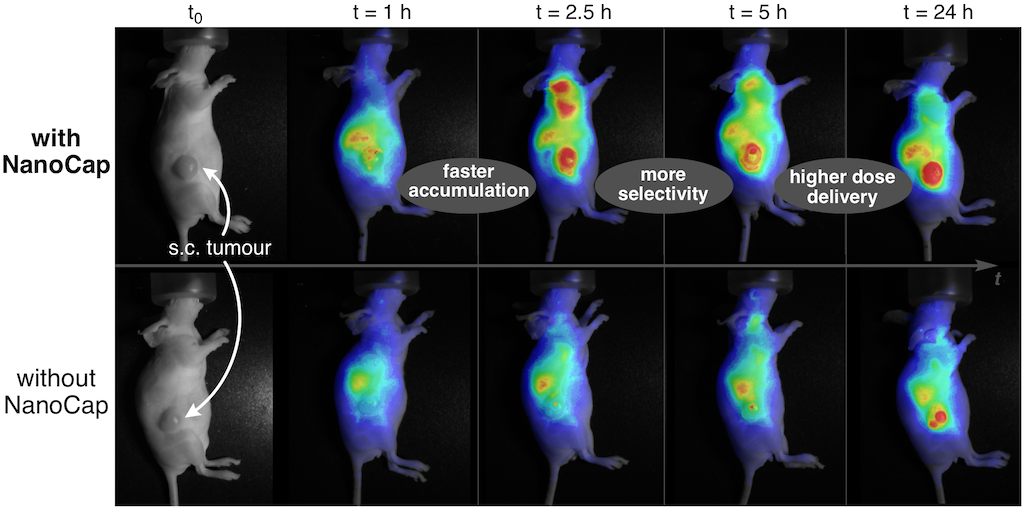Tumor-targeting with small molecule methods (completed)
Oliver Thorn-Seshold's chemical biology group moved to TU Dresden in 2024.
Julia Thorn-Seshold's redox biology group moved to UKDD in 2025.
This webpage is no longer maintained.
In vivo applications of small-molecule methods to target tumors (completed project Nanocapture)
A major challenge for cancer therapy is sufficiently as well as selectively distributing bioactive cargos to tumours, without needing to rely on protein target or transporter expression profiles that are highly variable within and between cancer indications. Small molecule approaches relying on tumor-activatable prodrugs are one widely-pursued method for unmasking bioactives one molecule at a time, though the chemical space explored has remained rather limited. Alternatively, "nano-formulated" diagnostic and therapeutic agents for cancer (nanoparticles, liposomes, virus-like particles) can deliver high doses of cargo per particle, as well as delivering cargoes that cannot be formulated as small molecules (eg. hydrolytically unstable compounds, elements which cannot easily be included in drugs, or functions reliant on superstructure eg. quantum dots): but little nano work has reached patients in the clinic.
From 2016-2022 we ran the NanoCapture project, pursuing translational therapeutic applications of small molecule-based methods to target bioactive cargos to tumors: one for nanoparticles, and one for prodrugs (funded by the GOBio Biotechnology award of the German Ministry of Education and Research (BMBF), with prior BMBF support through a Biotechnology Exploratory Grant in 2015 and a Feasibility Grant in 2017). The aims were to test strategies for improving therapeutic efficacy and safety margins that can be applied to arbitrary cargos (therapeutics; diagnostics for MRI, PET, or fluorescence; or theranostics), allowing refined medical applications for a range of modalities.
Results are being published (e.g. ACS Central Science 2023, JACS 2024) - see the Publications page.

NanoCap nanoparticle-to-tumour targeting. Fluorescent cargos are delivered faster and more selectively to tumours using our combination approach (mouse s.c. tumour model).


